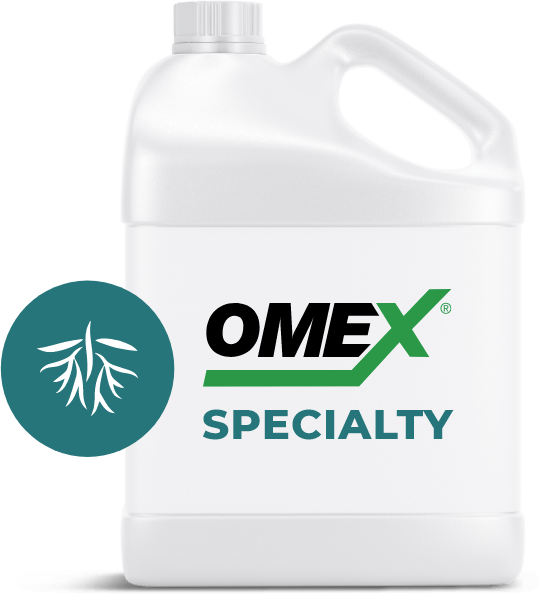
pHix

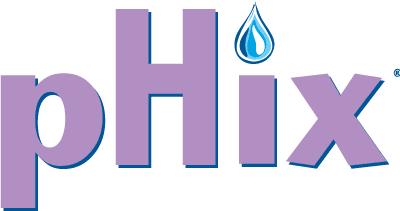
The Water Conditioner
What is It?
- pHix is a water conditioner formulated with a stabilized Sulfur.
- It creates an ideal environment in the spraying tank for maximum herbicide efficacy by reducing water hardness to levels below 50 ppm.
- pHix has also an acidic nature that allows lowering the pH of the spray solution to 2.5-3.5.
- The product is available in 10L jugs, 450L and 1000L IBC’s.
When & Why Use It?
- Use with glyphosate at pre-burn and for crop desiccation.
- Traditional spray water has a level of hardness of 100-800 ppm and a pH of around 7.5.
- The Sulfur fraction in pHix causes Gypsum to precipitate out of the water thereby improving the water quality.
- pHix lowers the solution pH to the point where Glyphosate cannot be chemically tied up with positively charged ions such as Calcium, Magnesium and Iron, which are the source of water hardness.
- Improves solubility of other Phosphate-based pesticides.
- Benefits of “facilitated diffusion” from the urea-based component of pHix.
What to Expect?
- pHix improves water quality, which is critical to herbicide performance and efficacy.
- pHix is much more effective at lowering the pH in the spray tank compared to Ammonium Sulphate.
- pHix has a low usage rate.
- A 10 L jug can treat 400 acres at 5 US gal/ac spraying volume.
- pHix is extremely economical.
Size Options

Tote

10L
Application Guidelines
- For use with Glyphosate and other Phosphate-based pesticides requiring low pH.
- It is suggested that water be tested for both pH and level of hardness. Water with higher mineral content will require higher rates of pHix.
- Always add pHix FIRST to condition the water before adding the pesticide.
- Spring Rate for pre-burn: 0.5 L/100 US gal of water.
- Fall Rate as a harvest aid and desiccation of hard to kill weeds: 1.0-2.0 L/100 US gal of water.
- For in-crop use during the season, use sopHtner95 instead of pHix to soften the water.
Findings
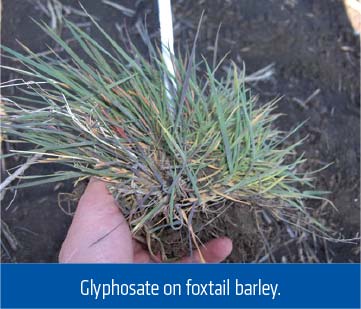
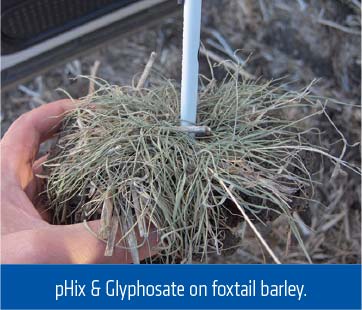
| VARIABLES | PHIX | AMMONIUM SULPHATE |
|---|---|---|
| Nitrogen | Urea – neutral Ammonium low burn potential | Ammonium higher burn potential |
| Sulphur | Stabilized Sulphuric acid | Sulphate |
| pH – Concentrate | 1.0 | 4.5-5.0 |
| pH – Spray Solution | 2.3-3.5 | 5.0+ |
| Rate | 0.5 L/400 L 0.125% of the spray solution | 1 L/ac 2.5-5.0% of the spray solution |
Utility Modifier with Glyphosate
- Water Hardness: cations: Ca2+, Mg2+, Fe3+
- Lowers water pH: maximum glyphosate performance at 3.5pH
- Low use rate: 500ml – 2L/100 gallons water
- Low cost: 45¢/acre @ 5 gallons/acre
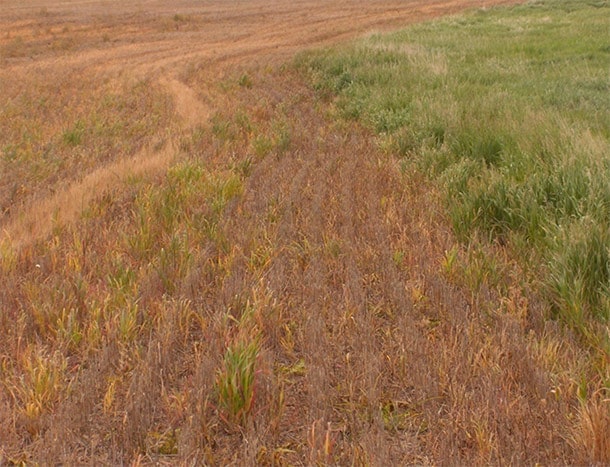
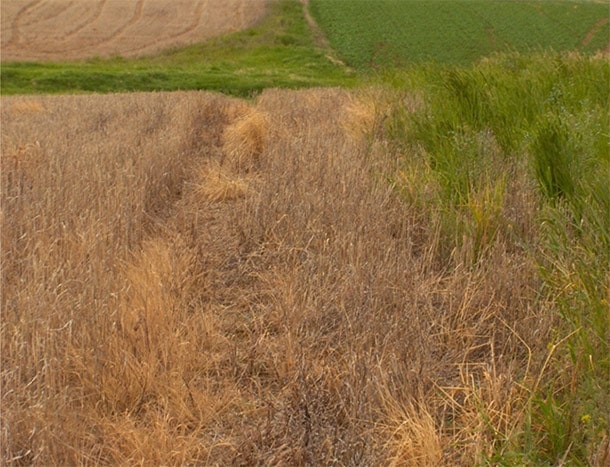
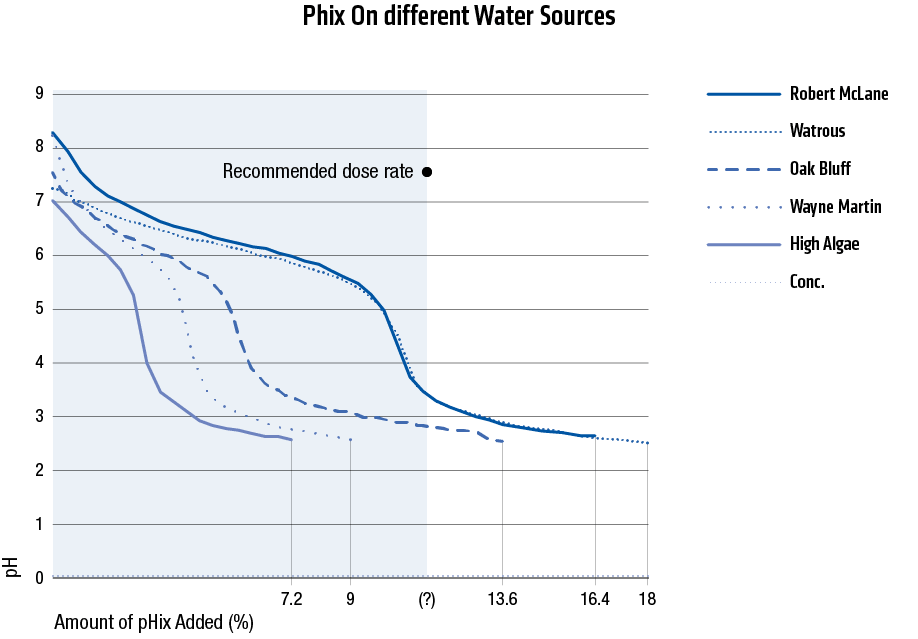
Hard to kill Foxtail barley
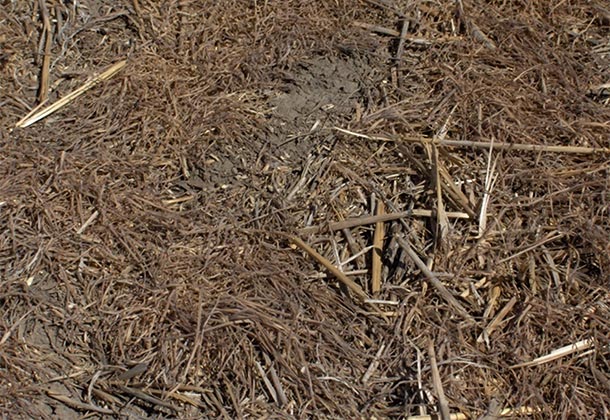
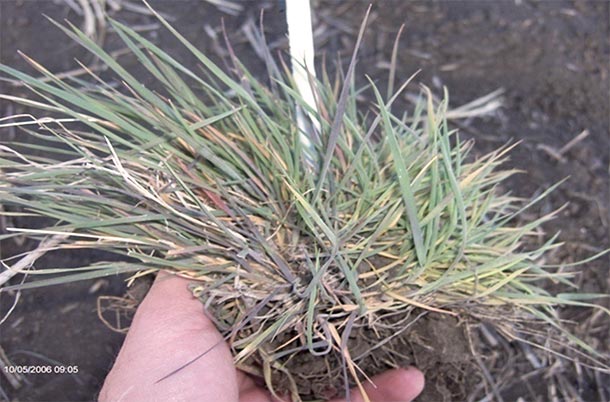
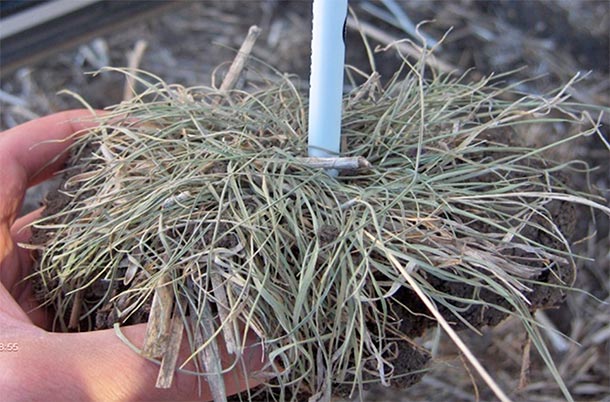
Glyphosate Only vs. Glyphosate + pHix



